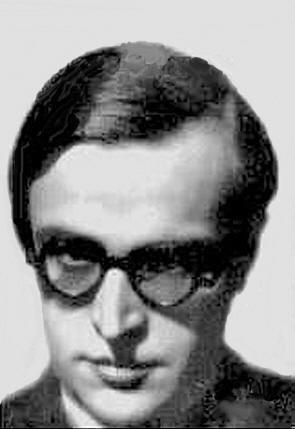On a major Vision of the Anointed, anthropomorphic
global warming climate change, a Nobel laureate in physics includes himself out:
Dr. Ivar Giaever, a former professor with Rensselaer Polytechnic Institute and the 1973 winner of the Nobel Prize in physics, abruptly announced his resignation Tuesday, Sept. 13, from the premier physics society in disgust over its officially stated policy that “global warming is occurring.”The official position of the American Physical Society (APS) supports the theory that man’s actions have inexorably led to the warming of the planet, through increased emissions of carbon dioxide.Giaever was cooled to the statement on warming theory by a line claiming that “the evidence is inconvertible.”“In the APS it is ok to discuss whether the mass of the proton changes over time and how a multi-universe behaves, but the evidence of global warming is incontrovertible?”
Now, I’d like to use a “mainsteam” source for this instead of Fox, but a google doesn’t show any of them reporting it yet. Perhaps The New York Times will mention it in its own good time, but regardless, we should not expect a fawning tribute to Dr. Giaever in the NYT Magazine, as the brave rebel who gave the intellectual finger to the reigning academic Powers That Be.
The Leviathan of the Anointed has two heads, the academic establishment and the traditional media, a synchronized one-two bite that’s impressively deadly to its foes: one plays the game and the other prints the box scores, where the good guys always win.
I had an interesting exchange with an academician recently, the author of a new book for the Harvard University Press presumably on history, but really appears to be a Coulter-style polemic [sans wit and originality] against the fundamentalist Religious Right, therefore against the right, therefore against the GOP, therefore Vote Democrat. We Anointed-watchers are already familiar with this script. Even street-fighter James Carville knows the lines by heart:
“…these creationism-loving, global-warming-denying, immigration-bashing, Social-Security-cutting, clean-air-hating, mortality-fascinated, Wall-Street-protecting Republicans running my country.”
The rhetorical tactic is that creationism [on which the academy is surely correct] is leveraged into the self-evident truth of the academy’s other left-liberal positions on everything else: ecology, sociology, sexuality, history. Policy.
I recently declined an invitation into the tall weeds of the AGW debate; two commenters accepted it and spent hours and hours of research and cut-and-paste to the net effect of zero. So I decline again–my point then and now is that the Anointed have squandered the public trust on all these issues, with their claims that “the case is closed” and the strong-arming of their critics under cover of scholarly authority.
No surprise, then, that one recent poll found “69 percent of those polled believe it’s at least somewhat likely that some scientists have falsified research data in order to support their own theories and beliefs. Just 6 percent felt confident enough to report that such falsification was “not at all likely.”
Another poll found that 57% of Americans trust the media to report “fully, accurately and fairly” not very much or not at all. The Great Unwashed may be dumb, but they ain’t blind.
Our civic problem remains epistemological: that’s why we can barely have an adult discussion across ideological lines anymore. It’s my opinion that the Anointed of the academy and the media have betrayed their trust by their tactics. Whether or not that opinion is true, what’s a fact is that they have lost their trust and authority with a strong majority of the American public, and that’s the name of this tune.
Me, I don’t think academic alphabet soup after one’s name or a byline in the NYT liberates anyone from the bias and shading of the argument that we’re all prone to.
Because The Anointed are human beings, too. Sort of.






